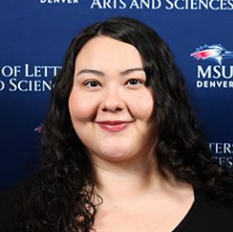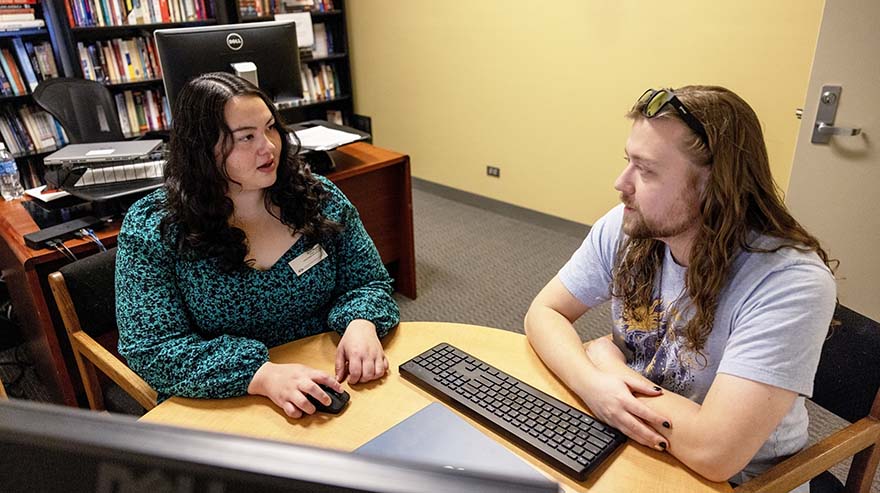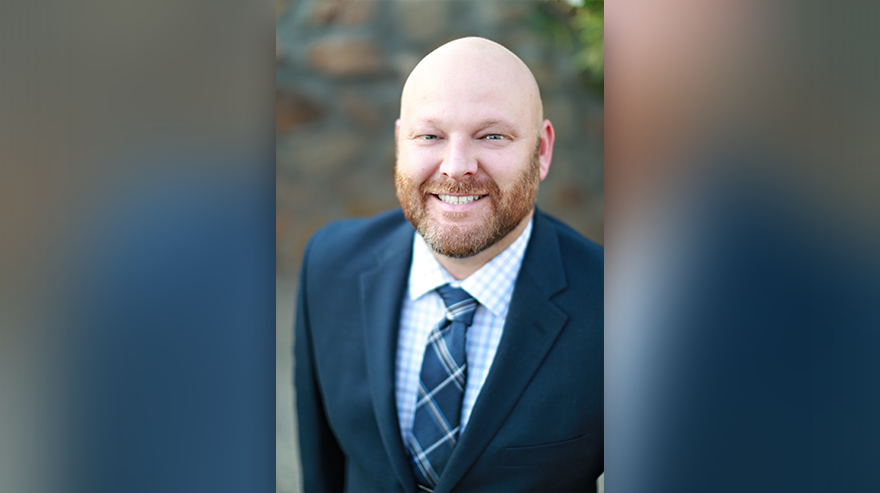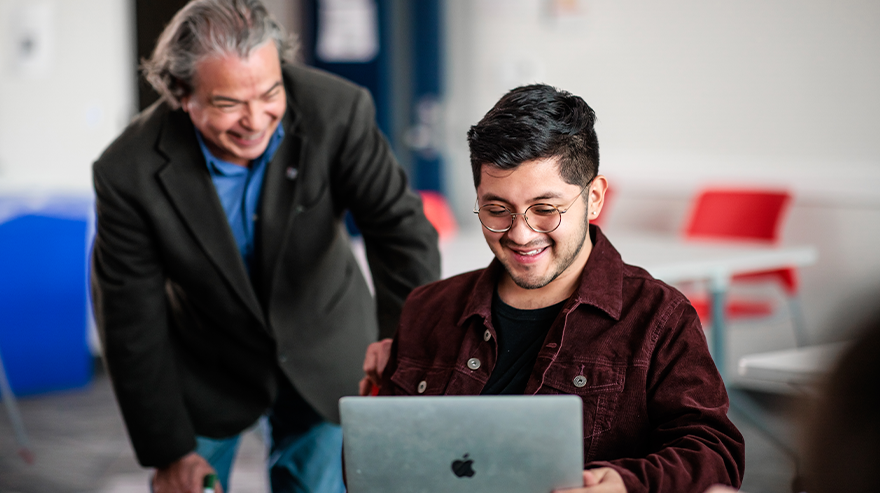Among navigating degree plans, managing transfer credits and balancing life’s curveballs, college can be overwhelming. Fortunately, Metropolitan State University of Denver students have some help. This week, the University is celebrating the advisors who help students make informed decisions and access the support they need to succeed.
April 27-May 3 marks Global Advising Week, an initiative by Nacada, the global community for academic advising, to recognize the essential role academic advisors play in student success.
The impact of advising, by the numbers
From last October through early February, nearly 12,000 unique students met with an advisor or attended drop-in advising. Of those students, 80% were retained for the spring semester, highlighting a strong link between advising engagement and continued enrollment.
Among students who used MSU Denver’s new academic-planning tool, Next Gen Academic Planner from Navigate360, in collaboration with an advisor, spring retention was even higher:
- 97% of students who received an advisor-created academic plan were retained.
- 88% of those who co-created a plan with their advisor stayed enrolled.
“This is promising early data,” said Stephanie Allen, director of Advising Systems. “And we’re just getting started. As more students engage with the planning tool and their advisors, we expect to see even more meaningful progress.”
Students typically seek advising for degree planning, major or minor changes, academic concerns or notices, career guidance and resource referrals. Increasingly, advisors are also guiding students through complex life challenges, all while helping them stay enrolled and engaged.
‘Your partner in getting there’
Behind the numbers are professionals such as Maddie Wright, an academic advisor in the School of Hospitality. Wright brings empathy, energy and encouragement to each advising session.
“I really believe that every student is on a unique journey and success looks different for everyone,” she said. “Some people want to go to grad school, some want to open a food truck, and some just want to pass their toughest class. Each of those goals matters, and I want to be your partner in getting there.”
Wright said advising isn’t just about checking boxes but that it’s about helping students navigate the “logistics and holistics” of college life.
“I like to tell students that advisors may not have every answer but we usually know someone who does,” she said. “We’re here to sit with you through the scary parts and celebrate the great ones.”
A partnership that makes a difference
For Sara LaPoint, a History major who returned to college later in life, academic advising has been essential to balancing school, work and caregiving.
“I work full time and care for my mom, so knowing Alexis (Magaña) is there if I need anything has been a huge comfort,” LaPoint said. “She’s helped me with graduation planning, transfer-credit issues and even finding alternatives to expensive courses.”
LaPoint’s advisor helped her petition to have previously earned credits count toward her degree and encouraged her to take a CLEP exam, which allowed her to earn English Composition credit at a fraction of the usual cost.
“I saved time and money thanks to Alexis’ support,” she said. “She’s been a friend and a cheerleader. I hope she’ll be at my graduation in 2026.”
Magaña, who advises for five departments in the College of Letters, Arts and Sciences, said her approach to advising is deeply student-centered.

“I love working with students who’ve struggled or who are coming back after time away,” she said. “I meet them where they’re at — maybe they’re juggling work, family, life, and we talk about what’s motivating them and how we can organize and prioritize what matters most right now.”
Her caseload includes students facing academic probation or returning after suspension. For them, consistent advising and encouragement can be the difference between dropping out and graduating with pride.
“My favorite thing is seeing a student with a 1.5 grade-point average turn it around and graduate with a 3.5,” said Magaña. “We talk often, connect them with professors and resources and help them build inner strength and confidence.”
Gratitude in action
MSU Denver’s academic advisors are often the first call when students feel lost and the loudest cheerleaders when they succeed. Their work happens behind the scenes, but the impact is front and center.
“I want students to feel empowered,” said Magaña. “Yes, I’ll help you figure out your schedule. But I also want you to take control of your education, feel connected to a community and know that you belong here.”
This week is the perfect time to thank an advisor with an email, a Shoutout or a kind word of appreciation.
To learn more about advising, visit the Academic Advising website.








